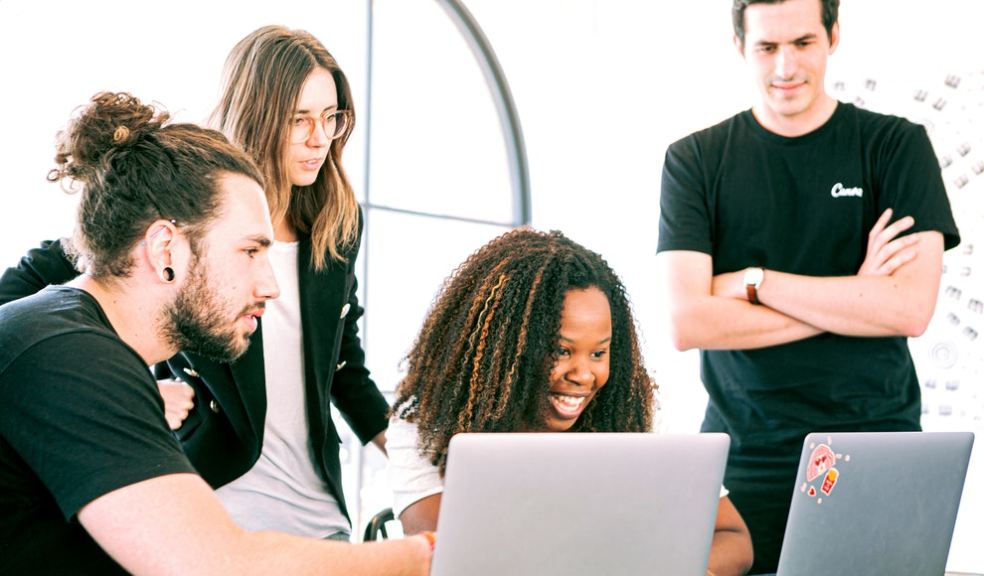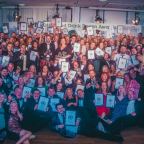
Plymouth marine startup weekend gets green light in Devonport
Plymouth’s most innovative, forward-thinking minds converged on Devonport recently for the inaugural Plymouth Marine Startup Weekend. The two-day event saw the city’s sharpest entrepreneurs collaborate on a range of education, tourism and marine conservation issues, with teams given the weekend to develop plans to put before the event’s judges.
The event was held at the Market Hall of realideas.org, which aims to support young people and give start-ups and fledgling entrepreneurs a platform to thrive and make positive societal change. Unsurprisingly, given its location in the naval hub of Devonport, complete with its links to the Naval Heritage Centre, the maritime issues carried significant focus throughout the event.
From an ecological perspective, many businesses throughout south Devon have been working hard to mitigate their impact on the wider environment in recent times. Its agricultural sector is getting much-needed funding through the Devon Agri-Tech Accelerator (DATA) project, which focuses on sustainable farming and minimising the county’s carbon footprint, whilst supporting the local economy. Plymouth construction consultancy baileypartnership.co.uk also recently pledged to deliver 100% of its project in ‘net zero’ fashion by the turn of the decade.
Meanwhile, William Hill, which has many land-based premises throughout the city, last year switched its electricity supply to 100% renewable green-sourced electricity. William Hill is a historic brand that remains a highly regarded name in the bookmaking industry, as evidenced by its high ranking on independent directory sites like bonus-codes.com. Clinching the crown, when compared to other contenders in the online casino market scene, William Hill has set a precedent with this plunge into renewable energy and this move should certainly inspire others across South Devon to take the leap of faith.
Five teams get creative in an ‘Apprentice’-style competition
However, given the distinct maritime nature of the weekend, the entrepreneurs were split into five equal teams and were given the opportunity to think outside of the box specifically for the blue environment.
In an approach akin to the successful BBC television series ‘The Apprentice’, each team developed a business idea from a small acorn into a fully-fledged and costed business model. All of which was conducted with the guidance and expertise of seasoned mentors throughout the weekend.
The five business ideas were later pitched at the end of the weekend to the panel of judges, containing some of the most influential figures within the maritime industry. These included Richard Thompson, Professor of Marine Biology and Director of the University’s Marine Institute and Richard May, Head of Oceansgate and Marine Investment at Plymouth.gov.uk.
The winning concepts revealed
Two teams would eventually share first place, with Seagrass Solutions and Yachtee impossible to split by the judges. The award for the Best Product Design also went to Makers Wear Capes. The business idea for Sea Grass Solutions was to utilise seagrass as a filter to continue driving microplastics out of the ocean. The knock-on impact would transform water quality, while the filters would also be designed as CO2-absorbent to curb emissions.
The business idea for Yachtee was described as the ‘Airbnb of the sea’. With a business model fusing agency support for local yacht owners that could be paired with customers and tourists, a gap in the boat rental market could be neatly filled.
Both winning teams were handed bespoke packages, designed to help them on the next stage of their respective entrepreneurial journeys. They ranged from memberships with the Devon and Plymouth Chamber of Commerce, co-working space and mentoring with a Real Ideas Organisation membership, and consultations with the Plymouth College of Arts Fab Lab.
Professor Chris Bennewith, interim dean of the Faculty of Arts, Humanities and Business at the University of Plymouth, said this event left him “feeling positive about the future of our oceans and marine ecosystem”. Bennewith was impressed with the “creativity” on show to “educate and build awareness” of the climate challenges ahead.












